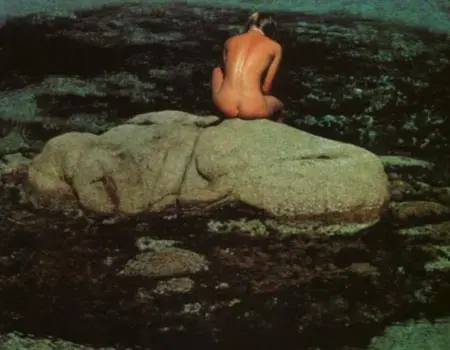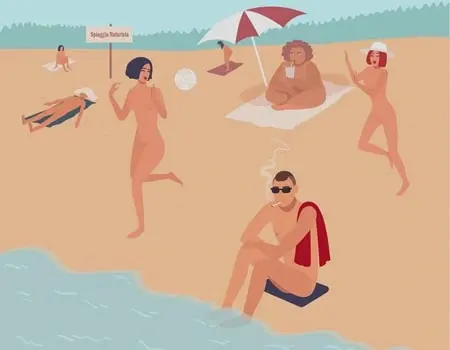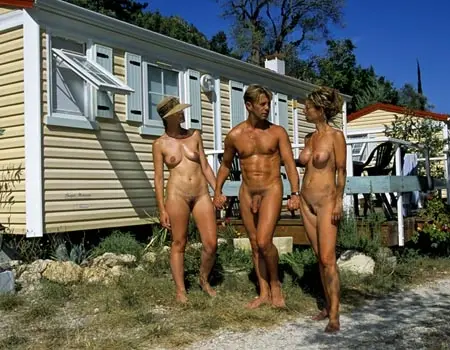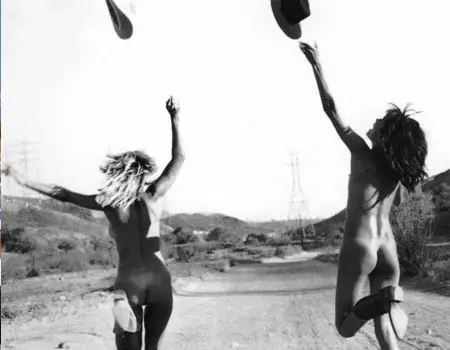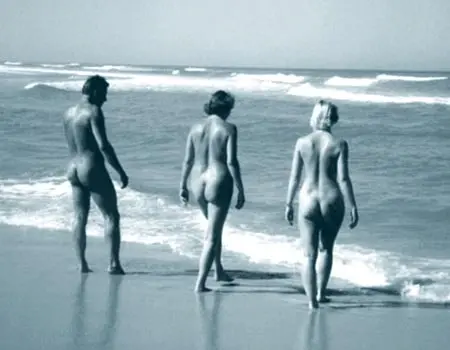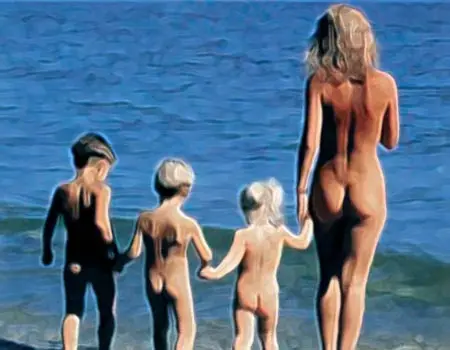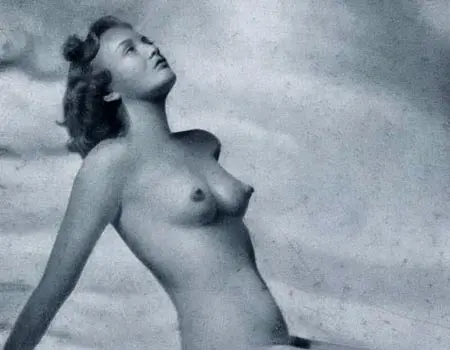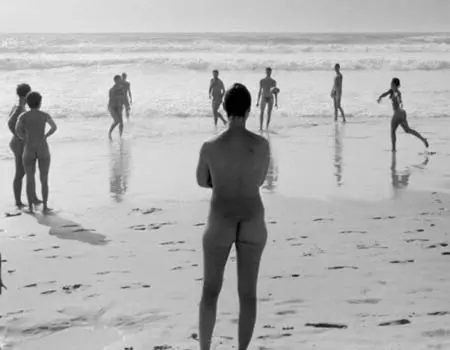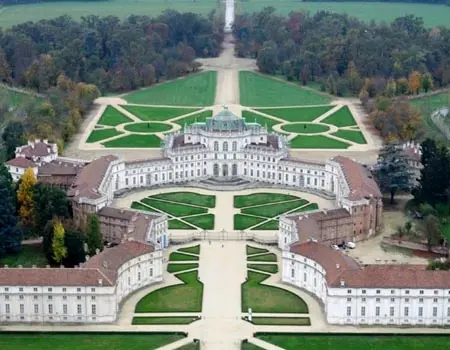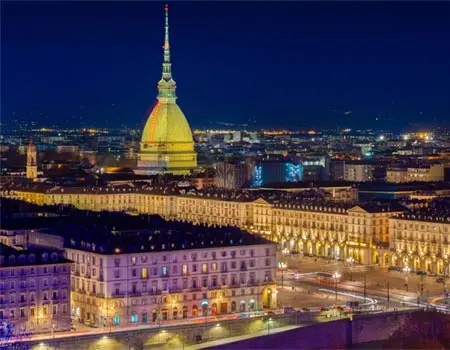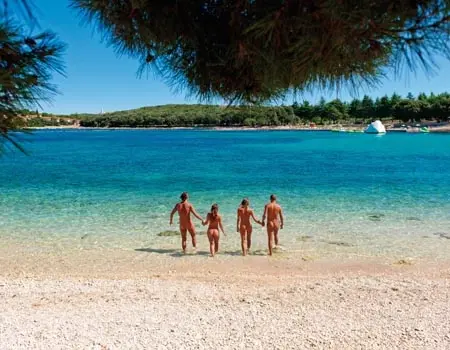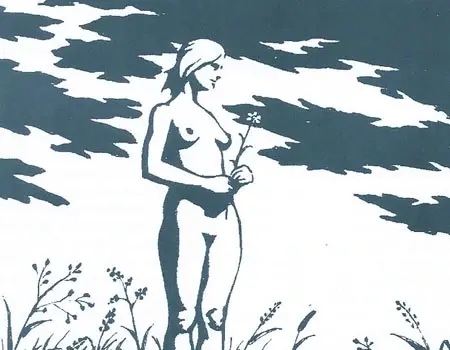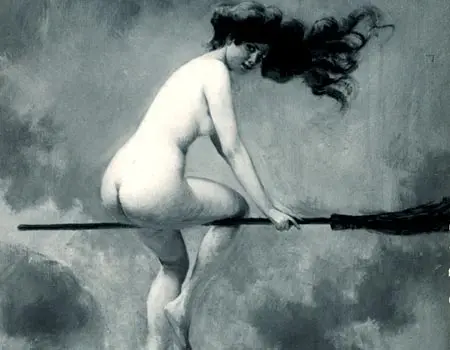Naturism and Faith
Does Naturism have anything to say to faith and does faith have anything to say to naturism? Without expecting obvious responses I would like to reflect on this question starting with my personal experience.
I am 43 years old and have been married for 18 of those years. I have a lovely wife who is 40, and two teenage daughters, one 16 and one 11.
I left the seminary at the age of 20 after having spent ten years dedicating my life to the study of theology and religion. I realized that I wanted to have a family and work as a volunteer in social services, with a particular preference for young people, while jìnishing my theology studies privately. Faithful to my aspirations,
I worked in parishes and society at large, and eventually co-founded a volunteer organization of which I am currently the president.
My family and I have been in naturists for fìve yearsl And this new lifestyle has not in the least hindered my relationship with religionI I just asked myself certain questions that initially upset my moral system: am I doing the right thing or the wrong thing by living this experience? Is naturism a triumph or just one more difficulty in my relationship with my children?
What human or social value does my naturism have?
I wondered if I were a sinner because I was a naturist. My answer was not merely that we are not doing any harm: living nude is actually a good and positive thing. If it is not bad, it is good (no halfway); and i fit is good, it can be practiced by and proposed to everyone because what is good for us, according to the Gospel, should be shared with our neighbors.
There is no clear or exhaustive biblical basis regarding the goodness of naturism, but from the few elements we have at our disposal we can attempt to give logical explanations.
My objective here will be to seriously explore these biblical themes because I jìrmly believe it is the need of every Christian and non-Christian who is approaching naturism.
To begin with, in the Genesis we have Adam and Eve who -felt no shame- before sin.
But after sin, they realized they were nude. The criticai moment regards the creation of man conceived and desired by God (in addition to the requisites of ruling over Creation, etc.).
Man s social life was characterized by nudity conceived of as normal in a loving relationship with others and God. With the arrivai of sin, nudity became the symbol of sinful humanity and the disappearance of the true humanity created by God, which man refused.
Throughout history I can see how nudity, when experienced in a positive way, was an attempt to recover not only the symbol of life's fullness but also the reality of a new life where nudity is an integrai parto In Job s temptations nudity From belongings and clothing is the prelude to new relations with God that are more intense and Jamiliar. In the case of St. Francis, loving God and our neighbors was experienced in poverty (where God is Providence) and nudity From possessions and clothing was the symbol par excellence of sister poverty. In the New Testament Jesus says,
Do not worry about what you drink, eat or wear because your Father knows what you need-.
Then clothing again fulfilled the purpose of covering us in winter and no longer symbolized shame or hidingfrom sin. And this is my point. The coming of Jesus, his death and resurrection, brought the -new earthly Paradise.
It was even more of a paradise because of his presence in our midst with the Church. The Christian community is none other than the -New Jerusalem- that starts right here with Jesus and will end at the end of time.
I left the seminary at the age of 20 after having spent ten years dedicating my life to the study of theology and religion. I realized that I wanted to have a family and work as a volunteer in social services, with a particular preference for young people, while jìnishing my theology studies privately. Faithful to my aspirations,
I worked in parishes and society at large, and eventually co-founded a volunteer organization of which I am currently the president.
My family and I have been in naturists for fìve yearsl And this new lifestyle has not in the least hindered my relationship with religionI I just asked myself certain questions that initially upset my moral system: am I doing the right thing or the wrong thing by living this experience? Is naturism a triumph or just one more difficulty in my relationship with my children?
What human or social value does my naturism have?
I wondered if I were a sinner because I was a naturist. My answer was not merely that we are not doing any harm: living nude is actually a good and positive thing. If it is not bad, it is good (no halfway); and i fit is good, it can be practiced by and proposed to everyone because what is good for us, according to the Gospel, should be shared with our neighbors.
There is no clear or exhaustive biblical basis regarding the goodness of naturism, but from the few elements we have at our disposal we can attempt to give logical explanations.
My objective here will be to seriously explore these biblical themes because I jìrmly believe it is the need of every Christian and non-Christian who is approaching naturism.
To begin with, in the Genesis we have Adam and Eve who -felt no shame- before sin.
But after sin, they realized they were nude. The criticai moment regards the creation of man conceived and desired by God (in addition to the requisites of ruling over Creation, etc.).
Man s social life was characterized by nudity conceived of as normal in a loving relationship with others and God. With the arrivai of sin, nudity became the symbol of sinful humanity and the disappearance of the true humanity created by God, which man refused.
Throughout history I can see how nudity, when experienced in a positive way, was an attempt to recover not only the symbol of life's fullness but also the reality of a new life where nudity is an integrai parto In Job s temptations nudity From belongings and clothing is the prelude to new relations with God that are more intense and Jamiliar. In the case of St. Francis, loving God and our neighbors was experienced in poverty (where God is Providence) and nudity From possessions and clothing was the symbol par excellence of sister poverty. In the New Testament Jesus says,
Do not worry about what you drink, eat or wear because your Father knows what you need-.
Then clothing again fulfilled the purpose of covering us in winter and no longer symbolized shame or hidingfrom sin. And this is my point. The coming of Jesus, his death and resurrection, brought the -new earthly Paradise.
It was even more of a paradise because of his presence in our midst with the Church. The Christian community is none other than the -New Jerusalem- that starts right here with Jesus and will end at the end of time.



